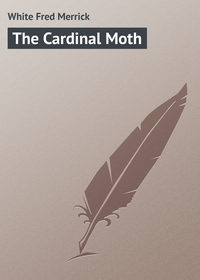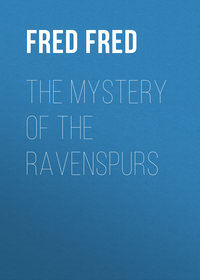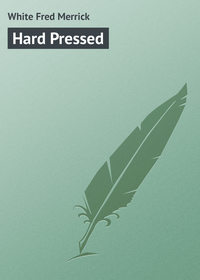 полная версия
полная версияThe Slave of Silence
Sartoris shuffled painfully out of the office with the help of the lawyer, and got into a cab. A moment later and Field was in the inner office with Mr. Fleming. He produced his card and laid it on the table by the way of introduction.
"This is the first time I have been honoured by a detective in all my long experience," the lawyer said as he raised his eyebrows. "I hope there is nothing wrong, sir?"
"Not so far as any of your clients are concerned, sir," Field replied. "As a matter of fact, I am the officer who has charge of the investigation into the strange case of Sir Charles Darryll. And I am pretty sure that the lame gentleman who has just gone out could tell you all about it if he chose. I mean Mr. Carl Sartoris."
The lawyer again raised his eyebrows, but said nothing.
"I see you have no disposition to help me," Field proceeded. "But just now Mr. Sartoris made a remark that gives me an opening. He came to you to-day with a deed which, unless I am greatly mistaken, purports to be an assignment of property from Sir Charles to Mr. Sartoris. And that property is probably a ruby mine in Burmah."
"So far you are quite correct," the lawyer said drily. "Pray proceed."
"I must ask you to help me a little," Field cried. "Let me tell you that Carl Sartoris was in the scheme to obtain possession of the body of Sir Charles Darryll. He was the lame man who was in the black hansom. I have been in that fellow's house, and I have seen the body of Sir Charles, unless I am greatly mistaken."
"Then, why don't you arrest that man?" the lawyer asked.
"Because I want the whole covey at one bag," Field said coolly. "Now, sir, will you let me see the deed that Carl Sartoris brought here to-day? Yesterday he did not know of your existence."
"He has been going to write to me for a long time," Fleming said.
"I am prepared to stake my reputation that Carl Sartoris never heard your name till this morning," Field said coolly. "I can produce a witness to prove it if you like. My witness is Miss Violet Decié, only daughter of Lord Edward Decié of that ilk."
The lawyer's dry, cautious manner seemed to be melting. He took up a sheet of parchment and read it. It was a deed of some kind, in which the names of Charles Darryll and Carl Sartoris figured very frequently. Field asked to be told the gist of it.
"An assignment of mining rights," Fleming explained. "A place in Burmah. It was a dangerous place to get at some time ago, but things have changed recently. At one time certain Burmese followed Sir Charles about and threatened his life unless he promised to let the thing drop. But Sir Charles had assigned all his interest for the sum of five hundred pounds paid to him by Mr. Carl Sartoris. Here is the signature."
The deed looked regular enough. Field looked closely at the signature of Sir Charles.
"Of course it would be easy to get the body of the deed written by a clerk," he said with a thoughtful air. "If there was anything wrong about the thing, the false note would ring out in the signature. Are you sure that it is genuine?"
"Quite," the lawyer said with conviction. "I'll show you some old letters of poor Sir Charles if you like. The signature is a little peculiar in the respect that it has a long loop to the first l, and a short loop to the second. That appears in every signature. Besides there is that little flourish over the C. The flourish really forms the initials 'C. D.' Can't you see that for yourself? Leave out ever so little of the flourish, and the 'C. D.' disappears."
Field was fain to be satisfied, though he was a little disappointed too. The pretty little theory that he had been building up in his mind had been shattered.
"I suppose I shall have to give way on that point," he said. "Only it strikes me as strange that a man should have allowed this matter to lie for three years without making use of it. Unless, of course, Sir Charles's death made all the difference. Allow me."
Field's eyes began to gleam as they dwelt on the parchment. There was a red seal in the top left-hand corner, a red seal with silver paper let into it and some small figures on the edge.
"What do those figures represent?" he asked. "The figures 4. 4. '93, I mean."
"The date," Fleming explained. "Those stamped skins are forwarded from Somerset House to the various sub-offices, and they are dated on the day they go out. The date-figures are very small, and only the legal eye gives them any value at all."
Field jumped up in a great state of excitement. He had made an important discovery.
"Then this is a forgery, after all," he cried. "4. 4. '93 means the fourth of April 1893, and the deed is dated three years ago. How are you going to get over that, sir? I take it, there are no mistakes in the date?"
Even the lawyer was forced out of his calm manner for the moment. He looked very closely at the red stamp through his glasses. It was some time before he spoke.
"You are quite right," he said. "And as to there being a mistake in the date, that is absolutely out of the question. You may be quite certain that Somerset House makes no mistakes like that. It is most extraordinary."
"I don't see anything extraordinary about it," Field said coolly. "That rascal, clever as he is, has made a mistake. Not knowing anything of legal matters in these minor points, it has never occurred to him to see whether these parchment stamps are dated or not. He simply bought a skin and got some engrossing clerk to make out the deed. Then he put in the date, and there you are."
"Stop a minute, Mr. Field," Mr. Fleming put in. "There is one little point that you have overlooked. I am quite prepared to take my oath to the fact that the signature is genuine."
Field stared at the speaker. He could find no words for the moment. He could see that Fleming was in deadly earnest. The silence continued for some time.
"Well, I thought that I had got to the bottom of this business, but it seems to me that I am mistaken," Field admitted. "In the face of the evidence of forgery that I have just produced, your statement that the signature is genuine fairly staggers me."
"The deed purporting to have been executed three years ago has only been executed a few days, or a few months at the outside," Fleming said. "What I think is this – there must have been some reason why the deed was dated back. Perhaps the old one was destroyed and this one copied from the other, and executed say a month or two ago. Would that not meet the case? You see I am taking a legal view of it."
"You are still sure of the signature?" Field asked.
"Absolutely. On that head I do not hesitate for a moment. Whatever else may happen, I am positive that Sir Charles wrote that signature."
Field scratched his head in a puzzled kind of way. It was some time before he began to see his way clear again. Then a happy thought came to him.
"If they are so particular at Somerset House, the fact may help us. When those deed stamps are sold to the public, are the numbers taken, and all that?"
"So I understand. But what do you want to get at? Yes, I think you are right."
"Anyway, I'm on the right track," Field cried. "If what I ask is a fact, then the people at the sub-office will be able to tell me the date that parchment was sold. I see there is a number on the stamp. If I take that to Somerset House – "
Field spent half an hour at Somerset House, and then he took a cab to Wandsworth. He stopped at the Inland Revenue Office there and sent in his card. Giving a brief outline of what he wanted to the clerk, he laid down his slip of paper with the number of the stamp on it and the date, and merely asked to know when that was sold and to whom.
He watched the clerk vaguely as he turned over his book. It seemed a long time before any definite result was arrived at. Then the clerk looked over his glasses.
"I fancy I've got what you want," he said. "What is the number on your paper?"
"44791," Field said, "and the date."
"Never mind dates, that is quite immaterial, Mr. Field. You have us now. That stamped parchment was sold early this morning, just after the office was open – why, I must have sold it myself. Yes; there is no mistake."
With a grim smile on his face, Field drove back to London. He began to see his way clearer to the end of the mystery now.
CHAPTER XXIX
The cab with Mary Sartoris inside jolted along behind the other one, and presently Mary was greatly relieved to find that her horse was going the faster of the two. She bitterly blamed herself now for her folly in not waiting to see Beatrice, and still more so for trusting so important a letter in the hands of a mere servant.
But it was idle to repine over the thing now. The mischief had been done and the great thing was to repair it as soon as possible. As Mary's mind emerged from the haze in which it had been enveloped for the last few days, she began to see things more clearly. Now she realised that she had no settled plan of action when she set out to see Beatrice. She would have had to tell her everything or nothing had they met, and she could not have done this without making certain disclosures about her brother. She saw now that it would have been far better to have destroyed the letter and said nothing about it.
But then Mary could not tell a deliberate lie of that kind, and Carl Sartoris would have been pretty sure to have asked the question. He was pleased to regard his sister more or less in the light of a fool, but he did not trust her any the more for that.
Mary lay back in the cab and resigned herself to the inevitable. It was good to feel that she was leaving the others behind now, and her spirits rose accordingly. If she could only get to Wandsworth before the precious pair, she would be all right, provided always that Beatrice had not been in front of her. But as most of the trains were usually late there was more than a chance of success in this direction. The girl was nearing her destination now. She lifted the shutter on the top of the cab and asked if the other cab was at any distance. There was a queer sort of a grin on the cabman's face, as he answered.
"About five hundred yards, miss," he said. "Something seems to have gone wrong with them. So far as I can see the cab has lost a tire."
The other cab had stopped, and something like an altercation was going on between the fare and the driver.
Mary had not far to go now, and she decided that it would be safer to walk the rest of the distance. There was a little crowd gathering behind her and a policeman's helmet in the centre of it. Truly fortune was playing on her side now.
It was not very far to the house; there it stood dark and silent, with no light showing in the garden in front. Mary felt pretty sure that she was in time. Then the front door of the house opened, there was a sight of the hall in a blaze of light, and in the foreground the figure of a woman standing on the doorstep.
Mary gave a groan and staggered back with her hand to her head.
"What a piece of cruel misfortune," she exclaimed passionately. "Another minute and I should have been in time. Why did I not drive up to the house? My over-caution has spoilt it all. I am sure that was Beatrice Richford."
The door of the house closed and the figure of the woman disappeared inside. Mary had had all her trouble for nothing. Not only was Beatrice more or less of a prisoner there, but those thieves were pressing on behind. What was the best thing to be done now, with Beatrice exposed to the double danger? Mary racked her weary brains in vain. And in a few minutes at the outside the others would be here. It seemed impossible to do anything to save Beatrice from this two-edged peril. Mary started as she caught sight of a figure coming up the front garden. It was a stealthy figure and the man evidently did not want to be seen. As he caught sight of Mary he stopped. It was too dark to distinguish anything but his outline.
"Beatrice," the man said in a tone of deep relief. "Thank God, I have come in time."
Mary did not know whether to be pleased or alarmed. Evidently this man was some friend of Beatrice who had obtained an inkling of her danger and had come to save her. On the whole it seemed to Mary that she had an ally here.
"I am afraid you are mistaken," she whispered. "I am not Beatrice Richford. But I am doing my best for the young lady all the same. She is – "
"Don't say that she is in the house?" the man said in a muffled tone.
"Alas, that I can say nothing else," Mary replied. "I was just too late. Mrs. Richford had just entered the doorway as I came up. If you will tell me your name – "
"Perhaps I had better," the stranger said after a minute's hesitation. "I am Mark Ventmore; perhaps you have heard of me."
Mary gave a little sigh of relief. She knew all about Mark Ventmore. Here indeed was a man who would be ready to help her. She drew a little nearer to him.
"And I am Mary Sartoris," she said. "If you have heard of me – "
"Oh, yes, you are the sister of that – I mean Carl Sartoris is your brother. But surely you are altogether innocent of the – the strange things that – "
"I am innocent of everything," said Mary passionately. "I have wasted my life clinging to a man in the faint hope of bringing him back to truth and honour again. I am beginning to see now that I am having my trouble for my pains, Mr. Ventmore. Suffice it for the present to say that Mrs. Richford stands in great peril."
"Oh, I know that," Ventmore said hoarsely. "I got that information from Bentwood, the scoundrel! At the instigation of Inspector Field, who has pretty well posted me on recent doings, I have been following that rascal pretty well all day. We won't say anything about Berrington, who I understand is more or less of a prisoner in your brother's house, because Berrington is the kind of man who can take care of himself. But Beatrice is in peril – Bentwood told me that. The fellow's brains are in a state of muddle so I could not get the truth from him. It was something about a case of diamonds."
"Yes, yes," Mary said. "The diamonds that Mr. Richford gave his wife for a wedding present. Mr. Richford has got himself into severe trouble."
"Richford is a disgraced and ruined man. The police are after him."
"So I gathered. He is now in the disguise of an elderly clergyman, and at present he is – "
"Hiding in that house at Edward Street," Mark cried. "I saw him with Bentwood. But what has he to do with those diamonds?"
"Everything. I overheard the plot laid," Mary proceeded to explain. "Mr. Richford went to his wife and demanded the diamonds. He wanted to raise money so that he could go away in comfort and luxury. He told his wife exactly how he was situated. She refused to comply with the request on the ground that the stones belonged to Mr. Richford's creditors. Then unhappily, Mrs. Richford withdrew the diamonds from the custody of the hotel officials, being afraid that there would be a bother over them or something of that kind. Richford watched her do it. Then he met two accomplices who recently passed as General Gastang and Countess de la Moray, and the plot was laid. Mrs. Richford was to come here."
"But in the name of fortune, why was she to come here?" Mark asked.
"Perhaps I had better be a little more candid with you," Mary sighed. "There is a scheme on foot between my brother and some of the gang to gain possession of certain papers that belonged to Sir Charles Darryll. There are keys, too, which Mrs. Richford is known to possess. I don't quite know what the scheme is."
"Anyway I can give a pretty good guess," Mark said. "My father has been very ill and he sent for me. We have not been very good friends, my father and I, because I turned my back on the city for the sake of art. But all that is past now, and we have become reunited. My father seems to know a great deal about Sir Charles's affairs – something about a ruby mine or something of that kind. Anyway, I'm to get my information from Mr. Fleming, who is my father's solicitor. But I am afraid that I am interrupting you."
"There is not much more to tell," Mary went on. "Colonel Berrington was induced to write a letter to Mrs. Richford asking her to come here and see my brother."
"Berrington must have been mad to think of such a thing!"
"No, he did it at my instigation. I managed to communicate with him and assure him that no harm should come of it. No harm would have come of it if I had only kept my head and done the right thing. But the fact remains that Mrs. Richford is in there; she has those diamonds in her pocket and the thieves are on the track. It seems to me – "
Mary did not finish the sentence, for Mark held out a hand and pulled her behind a bush, just in time, as two other people came up the path. There was no occasion to tell either of the watchers that here were the people of whom they were talking. The man Reggie and the woman Cora were standing on the doorstep whispering together. It was quite a still night and the other two behind the bushes could hear every word that was said.
"So far, so good," the man was saying. "We've got here and we are pretty sure that our bird is securely caged, but what next?"
"Wait our chance," the woman said with a certain fierce indrawing of her breath. "We can appear to have come here by accident, for instructions, anything. So long as Sartoris does not know about those stones we are safe. When we get them – "
"When we get them, Richford can whistle for his share of the money," the man said coolly. "By this time to-morrow we shall be in possession of more money than we have ever had before. I don't like this present business, it's far too dangerous. Unless we go so far as to murder that fellow Berrington and get him out of the way – "
"Don't," the woman said with a shudder. "I hate that kind of work. Anything clever or cunning, anything requiring audacity, I can do with. But violence!"
She shuddered again, and the man laughed softly as if greatly pleased with some idea of his.
"There is going to be no more violence or anything else," he said. "This game has got far too dangerous. We'll change those stones into money and then we'll quietly vanish and leave our good friend Sartoris to his own devices. What do you say to that?"
"Amen, with all my heart," the girl said. "The sooner the better. But don't forget that we have not yet settled on a plan of action."
"Leave it to chance," the man replied. "We have all the knowledge that is necessary to the success of our scheme, and the girl knows nothing. She will not stay very long, it is getting late already. Suppose we pretend that we have a cab waiting to take us back to town, and suppose that we offer to give her a lift. Then that scent of yours – " The woman called Cora laughed and clapped her hands gleefully. It was an idea after her own heart. She patted her companion affectionately on the shoulder.
"Come along, then," she said. "Open the door with your latchkey. It's getting cold and I am longing for something to eat. This kind of thing makes me hungry."
The door opened and then closed again softly, and the conspirators had vanished. With a gesture of anger Mark strode towards the house, Mary following.
"What on earth are you going to do?" she said anxiously. "Will you spoil everything by your impatience? If you only realized the dangers that lie hidden yonder!"
Mark paused abruptly and bit his lip. The trouble was not over yet.
CHAPTER XXX
Meanwhile, absolutely unconscious of the dangers that were rapidly closing around her, Beatrice took her way to Wandsworth. Richford had been ingenious enough to see that Beatrice would go down by rail, as she had very little money to spare, so that if they desired it, the two conspirators could have got there before her. But there was no occasion for that, seeing that Beatrice had the treasure in her pocket and Sartoris was none the wiser.
Richford would have gone far at that moment to spite Sartoris. He had tried to play the latter false over the scheme that they had in hand together, and Sartoris had found him out. The latter made it a rule never to trust anybody, and he had been suspicious of Richford from the first. He had known exactly how Richford's affairs stood, he had seen that a sudden blow dealt at him now would pull the whole structure down and ruin it for ever. And without the smallest feeling in the matter, Sartoris had done this thing. But for him Richford could have pulled around again, as Sartoris had been aware.
But Sartoris had had enough of his ally and in this way he got rid of him altogether. Richford dared not show his face again; he would have to leave the country and never return. Sartoris chuckled to himself as he thought of this.
He was on extremely good terms with himself when Beatrice called. She had not given the letter from Berrington very much consideration, though she was a little surprised at the address. Doubtless the matter had something to do with her father, the girl thought. The mystery of that strange disappearance was getting on her nerves sadly.
Rather timidly the girl knocked at the door of the gloomy looking house, which was opened after a pause by a little man in an invalid chair. Beatrice looked at him in surprise. She gained some courage from a quick glance at the hall with its electric lights and fine pictures and the magnificent flowers in pots and vases everywhere. It seemed to Beatrice that only a woman could be responsible for this good taste, and she took heart accordingly. No desperate characters could occupy a house like this, she told herself, and in any case a helpless little man in a chair could not prove a formidable antagonist.
"I hope I have not made any mistake," she said. "If this is 100, Audley Place – "
"This is 100, Audley Place, Mrs. Richford," the little man said. "Will you be so good as to come this way and shut the door? I have been expecting you."
"It was a letter that I received from my friend, Colonel Berrington," Beatrice said. "He asked me to call and see him here. I hope he is not ill."
"I have not noticed any signs of illness," Sartoris said drily. "I have no doubt that the Colonel had very good reasons for asking you to come here, in fact he did so to oblige me. The Colonel is out at present. He is staying with me, being fond of the air of the place. I dare say he will be back before you go."
Beatrice nodded in bewildered fashion. In some vague way it seemed to her that her host was making fun of her, there was just a faint suggestion of mockery in his tones. Was there any plot against her on foot, Beatrice wondered. But nobody could possibly know of the diamonds in her pocket; besides, she had received the letter before she had thought of removing those diamonds from the custody of the hotel people. Again, as to the genuineness of Berrington's letter she did not entertain the shadow of a doubt. Nobody, not even an expert, could succeed in making a successful forgery of the dashing hand-writing of Berrington.
"If you will come this way," Sartoris said quietly, "we shall be more comfortable. As the evening is by no means warm you will perhaps not object to the temperature of my room. If you are fond of flowers, you may admire it."
A little cry of admiration broke from Beatrice at the sight of the conservatory room. She had forgotten all her fears for the moment. Gradually she let the atmosphere of the place steal over her. She found that she was replying to a lot of searching questions as to her past and the past of her father, Sir Charles. No, she had no papers, nor did she know where to find those keys. She wondered what this man was driving at.
"I knew your father very well at one time," he said. "I saw a great deal of him in India. In fact he and I were in more than one expedition together."
"What year was that?" Beatrice asked quite innocently.
To her surprise Sartoris gave signs of irritation and anger. He turned it off a moment later by an allusion to neuralgia, but Beatrice was not quite satisfied. Why did this man want the key of a certain desk, and why did he require a bundle of papers in a blue envelope therefrom? Beatrice resolved to be on her guard.
"I will do what I can for you," she said. "If you can come and see me."
"I am afraid that is impossible," said Sartoris, who had lapsed into his bland manner once more. "I am sensitive of people's remarks and all that kind of thing. I dare say you will think that I am morbidly self-conscious, but then I have not always been a cripple. I was as straight as yourself once. Fancy a little crooked figure like me in a hansom cab!"






